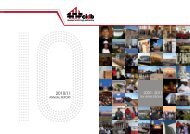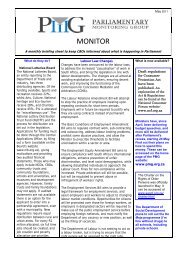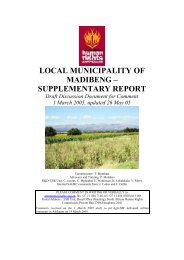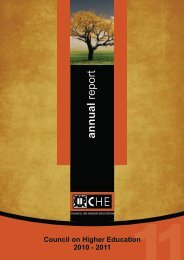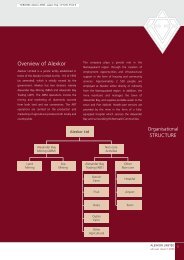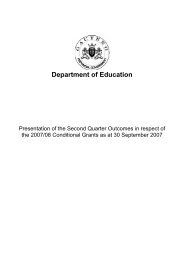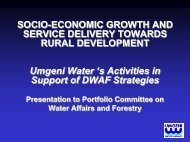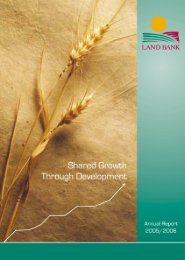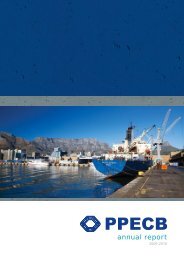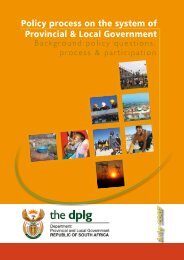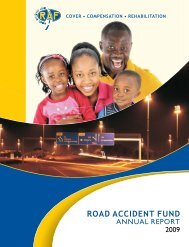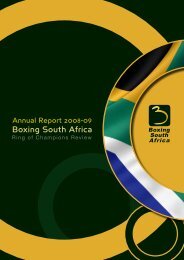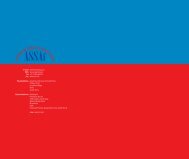National Research Foundation Annual Report 2008 / 2009 [Part 2]
National Research Foundation Annual Report 2008 / 2009 [Part 2]
National Research Foundation Annual Report 2008 / 2009 [Part 2]
Create successful ePaper yourself
Turn your PDF publications into a flip-book with our unique Google optimized e-Paper software.
22 NRFimpact report <strong>2008</strong>/09Science – and society – needs the enquiring minds of young people to pushboundaries, question the status quo and unlock dormant solutions. The Post-Doctoral Innovation Fellowship provides the ideal setting for such minds.innovation unlocks aknowledge economyIf South Africa is to be able to compete globally, it needs to build a strong knowledge economy acrossall sectors of the population. The Post-Doctoral Innovation Fellowship, a <strong>National</strong> <strong>Research</strong> <strong>Foundation</strong>Project in partnership with the DST, began in 2002 with this specific goal in mind.To date, the programme has invested in the careers of 30 research fellows, who are selected in linewith its goals of having a complement of fellows that is 85% black, and 65% female. The fellowshiphas chosen to focus on projects in climate change, astronomy, agricultural science, computer science,engineering, ICT, geology and physics, among others. Its main aim is to drive innovation that will leadto improvements in South Africans’ lives, through projects that will boost the country’s standing in theinternational scientific community.“The culture of postdoctoral fellowship is still not that strong in South Africa,” says Dr Thandi Mgwebi,the programme’s director. “Apart from a shortage of graduates at postdoctoral level, there are otherfactors that affect the success of a project like this.”By the time an individual reaches postdoctoral level, they have been in the academic environmentfor many years, often supported by extended family. “When someone reaches this level,their family, and often other relatives, look to them for support. At the very least, theywant them to quest after the prestige and remuneration that come with researchpositions in the corporate world, and the academic environment can seldomcompete with these,” Dr Mgwebi says. Added to these demands, many overseasuniversities offer prestigious and lucrative research fellowships, with which localprojects cannot compete, and the country loses many of its doctoral graduates toinstitutions abroad.Dr Thandi Mgwebi, programme director of the Post-Doctoral Innovation Fellowship.


![National Research Foundation Annual Report 2008 / 2009 [Part 2]](https://img.yumpu.com/49774036/24/500x640/national-research-foundation-annual-report-2008-2009-part-2.jpg)
